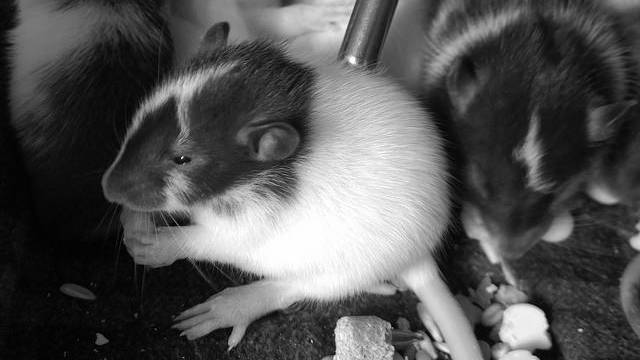 FLICKR, FORSAKEN FOTOSPrevious research has suggested a link between a mother’s weight and her offspring’s risk of obesity. But it might have to do more with mom’s diet than her figure, according to a rat study published this month (December 1) in the American Journal of Physiology. Female animals fed a diet with levels of fat, saturated fat, carbohydrates, and protein comparable to a typical Western diet were more likely to give birth to pups at risk for obesity than females fed a lower-fat, higher-grain control diet, even if the moms did not gain weight or struggle to regulate their blood sugar.
FLICKR, FORSAKEN FOTOSPrevious research has suggested a link between a mother’s weight and her offspring’s risk of obesity. But it might have to do more with mom’s diet than her figure, according to a rat study published this month (December 1) in the American Journal of Physiology. Female animals fed a diet with levels of fat, saturated fat, carbohydrates, and protein comparable to a typical Western diet were more likely to give birth to pups at risk for obesity than females fed a lower-fat, higher-grain control diet, even if the moms did not gain weight or struggle to regulate their blood sugar.
“Your diet itself matters, not just whether you are gaining excess weight or developing gestational diabetes,” said coauthor Eric Zorrilla of the Scripps Research Institute, in a press release. This is a key finding that may have implications for managing human pregnancies, added collaborator Jen Frihauf, a PhD student at the University of California, San Diego, while working on the project. “Doctors often use weight gain as a hallmark of a healthy pregnancy,” Frihauf, now a postdoc at Scripps, said in the release. “But we realized there was something going on in utero that wasn’t detectable in the mother’s weight.”
The increased obesity risk appeared to be lifelong, with offspring more prone to obesity as infants, adolescents, and even adults. The offspring of rats on ...




















